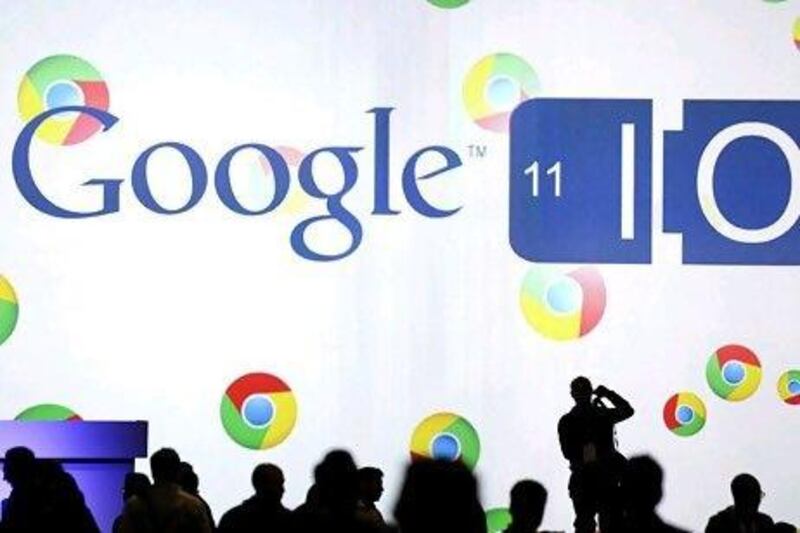For a company whose motto is "Don't be evil", Google is beginning to sound more and more like a villain from a James Bond film.
Silicon Valley is alive with speculation about what is going on in the bowels of the company's futuristic and sprawling headquarters, Googleplex. According to local public records, Google is engaged on a mysterious undertaking known only as "Project X", which is believed to focus on cutting-edge optical technologies. It is also known to be engaged in other secretive technology projects headed by co-founder Sergey Brin.
Project X is being housed behind blacked-out windows in a large space at the heart of Googleplex. According to local planning records, construction crews have been busy renovating about 74,000 square metres of the Googleplex. Google also had a record hiring year last year, suggesting it is gearing up for the launch of new products and services. It is also understood to be employing certain rare gases used in optical technology. This has led to speculation in Silicon Valley that Project X involves the use of highly advanced optical technology to power new products.
According to Rob Enderle, the principal analyst at Enderle Group, "The project appears to be connected to virtual-reality glasses, which initially will add [images] - like virtual signs including ads, names, street, address, company, resident - to physical things dynamically and eventually change what we see. Think of shifting clothing or people to an older age or another planet."
With Google also engaged in a US$12.5 billion (Dh45.91bn) acquisition of Motorola Mobility, technology watchers believe the company is about to evolve from a purely Web-based company into a hardware manufacturer. Google is acutely aware that, with rival search engine competition only a click away on the internet, it must rapidly extend its product and service range if it is to survive.
In addition to the mysterious "Project X", Google is also developing a device called "Android@home", which will act as a hub to stream media around the home. Elsewhere on the Googleplex campus, Google is developing thermal experimentation chambers that could be used to test antennae for wireless devices. The search engine giant is also known to be working on developing the technology for a computer-driven car.
But, despite Google's acquisition of Motorola Mobility, analysts believe the prototype products that will come out of Project X and other secret facilities at the heart of Googleplex could also be made more easily in quantity by existing manufacturers.
"They are designing hardware but there is no indication they will actually manufacture it. They are likely to either use an original design manufacturer or an original equipment manufacturer that wants to license the result from them and build it," said Mr Enderle.
This would leave the way open for Google to fast-track the development of entirely new 21st-century technologies and products. The optical technology being developed at Project X could underpin a wide range of consumer devices allowing 3D representation. "Android@home" could, for instance, be used eventually to stream not only audio but also 3D images around the home.
By conducting secret research planned to springboard it into the global arena of electronics manufacturing, Google is going to have to learn to play corporate hardball with some very big players. Already, Google is engaged in bitter legal wrangles over its Android mobile phone software, which has taken the mobile phone industry by storm, and its acquisition of Motorola Mobility. Rivals such as Samsung and Microsoft are already pursuing Google in countries such as Germany, where they think the law may be more favourable to them in a drawn-out battle.
Although the sixth point of Google's 10-point corporate philosophy is "You can make money without doing evil", Sergey Brin and others have become increasingly aware over the past few years that good and evil can come in varying shades of grey.
Last year, for example, the US federal trade commission imposed an order requiring Google to undergo 20 years of independent privacy monitoring after a privacy breach concerning the use of private consumer data by the company's Buzz social network. This followed a remark in 2009 from Eric Schmidt, the former Google chief executive, that enraged online privacy groups. "If you have something that you don't want anyone to know, maybe you shouldn't be doing it in the first place," Mr Schmidt said.
Now that Google is a global corporation valued at about £200 billion (Dh1.16 trillion) and under the scrutiny of vast numbers of shareholders and the world's regulatory authorities, plus that of a growing number of aggressive competitors, it may have to forsake yet more of the youthful ideals it seemed so fervently to espouse when it went public in 2004. In doing this, it inevitably risks tarnishing its hitherto holier-than-thou corporate brand.
"I actually think they should change their motto to Evil 'R Us," said Mr Enderle.
twitter: Follow our breaking business news and retweet to your followers. Follow us





